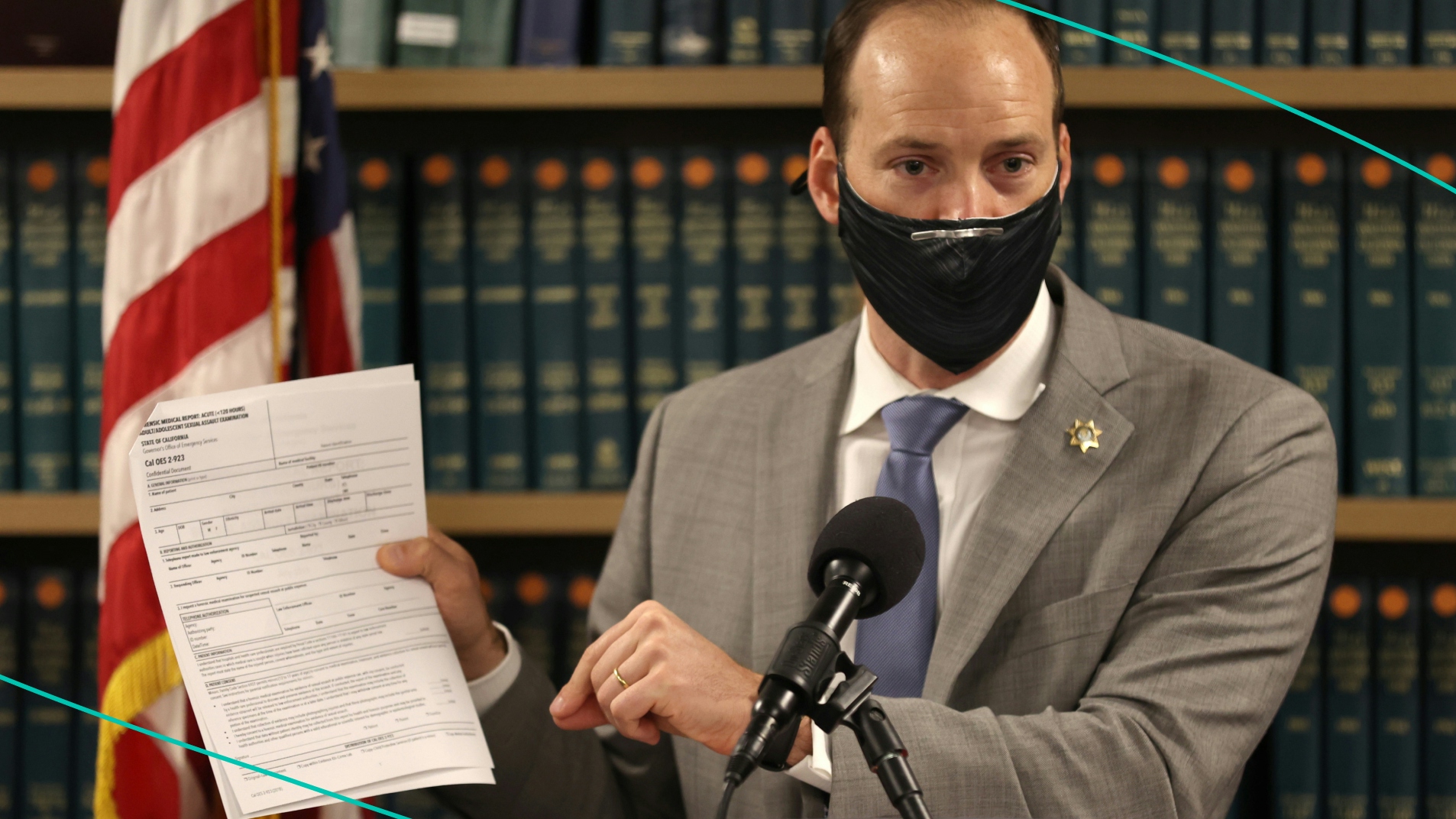San Francisco
Note: This story involves sexual abuse, which could be triggering to some readers.
The Story
The San Francisco Police Department is under scrutiny.
What’s this about?
Rape kits. They’re used to preserve possible DNA evidence of alleged rapists to identify them. Across the US, there’s been a backlog, leaving many kits unanalyzed. But that’s not why SF is under a microscope.
Go on.
This week, it came out that the police department hasn’t just been saving DNA samples from the assailants…it was also storing the samples of victims. For years. And keeping those samples to test them against a database of other crimes.
Whoa.
Exactly. SF’s district attorney has dropped property crime charges against a woman whose DNA was collected from a 2016 rape kit…even though she was the victim, not the assailant. The DA says the practice could violate her — and other victims’ — constitutional rights.
Explain.
The Fourth Amendment protects against unreasonable searches and seizures by the gov. California’s Victims’ Bill of Rights is also supposed to provide survivors with privacy and dignity.
What’s SF police saying?
That the DNA collection policy was legal under the country’s forensic standards. But the police chief acknowledged that it can disincentivize people from coming forward. And has ordered a review of the policy.
What now?
It is unclear how many police departments do this. But the DA, who’s facing a recall election, is pushing for legislation to end the practice.
theSkimm
It’s no secret that women have faced hurdles when it comes to speaking out against their abusers. Amid a justice system where convictions in sexual assault cases are still rare, women could now face repercussions for coming forward in the first place.
PS: If you need this, contact the National Sexual Assault Hotline here or by calling 1-800-656-HOPE.
And Also...This
What you'll need more than one coffee to process…
The other Trump-Russia probe. Last week, special counsel John Durham alleged a client for Michael Sussmann (who worked for Hillary Clinton’s 2016 campaign) organized a conspiracy to spy on the Trump admin. Reminder: Durham was appointed during the Trump era. And is investigating the origins of the FBI’s probe into Russian interference in the 2016 election. Sussmann is charged with lying to the FBI about his ties to the Clinton campaign. (Keeping up? Good.) At one point Sussmann said he had info suggesting Trump or his associates were using Russian-made smartphones. Turns out, he allegedly got that info from a guy whose tech company worked with the White House. Cue allegations that Sussmann’s flags to US intel agencies — which didn’t pan out — were politically motivated. And that the data gathered on Trump was improper.
Sussmann’s POV: He denies lying to the FBI. And called the latest allegations misleading, saying they’re intended to “inflame media coverage” ahead of his trial later this year.
Speaking of media coverage: Republicans have been fired up, accusing the media of downplaying the story. The message: 'this feels Suss.' Some news outlets are saying ‘it's weedsy’ while also trying to make clear where allegations are being distorted.
Why else Russia is on everyone's mind…
Ukraine. US officials say Russia is continuing to build up its military presence near the border — bringing the number of its soldiers there to 150,000. The news comes after Russia’s Defense Ministry said it was pulling back some troops. US intel is saying ‘show the receipts.’ Meanwhile, we're learning that US Navy surveillance aircrafts had dangerously close encounters with Russian jets last weekend. At one point, a Russian aircraft over the Mediterranean came within five feet of a US plane. You read that right. As in, closer than people get to each other while social distancing. The message: tensions are high.
PS: Need an assist on Russia-Ukraine history and why it’s gotten so tense? We got you.
PPS: On tonight’s episode of “Skimm This,” we hear from a reporter in Ukraine about what life there is like right now. Subscribe to get it tonight at 5pm ET.
What nothing breaks like…
A heart. No joke. Researchers are seeing a rise in “broken heart syndrome” — a rare and dangerous form of heart disease triggered by stress. It mostly affects women. Fortunately, people with the condition reportedly make a recovery in days to weeks, but long-term implications are still being examined.
PS: If you're feeling the pain of a breakup, here are science-backed tips to help you get better and move on.
When you love a good Disney ending...
One option: Not letting it end.
Live Smarter
Sign up for the Daily Skimm email newsletter. Delivered to your inbox every morning and prepares you for your day in minutes.
